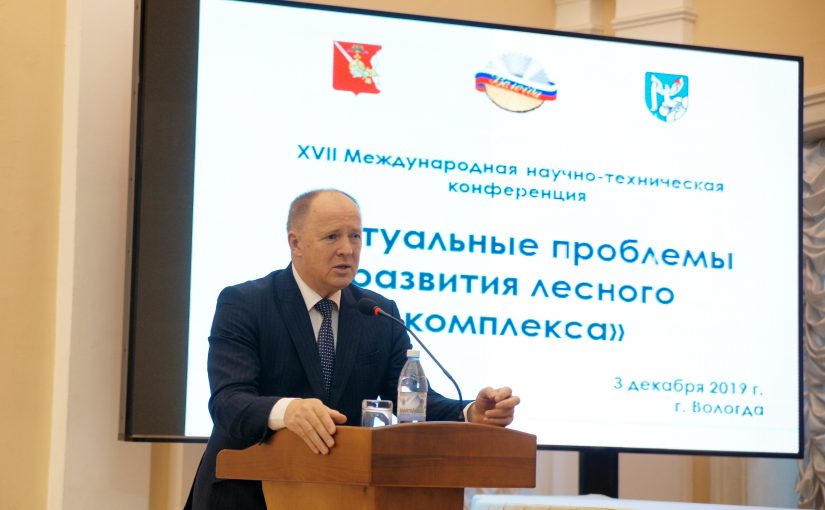XVII international scientific and technical conference is being held today at the Vologda state University. A large scientific meeting brought together scientists from Arkhangelsk, Vologda, St. Petersburg, Rostov-on-Don, Petrozavodsk, Kazan and the Republic of Belarus.
Mikhail Beznin, the vice-rector for scientific work of VSU opened the conference: “Forests are the most important natural resources for our country. The Vologda State University employs high-level scientists who combine their efforts in research of protected natural areas, ecology, forest monitoring, forest cadastre and geodesy, landscape construction, forest inhabitants, ornamental woody plants and forestry.”
Roman Markov, Head of the Department of Timber Complex of the Vologda Oblast, also emphasized the importance of the research of the forest problems: “the scientific conference dedicated to the research of the forest complex is traditionally the opening page to the upcoming international forestry forum and exhibition – “The Russian Forest”, which will start tomorrow in Vologda. The forest industry is one of the most important areas of our region’s economy. The Vologda Oblast is among the top three regions of Russia in terms of timber harvesting. Forests are a renewable resource, so research in the field of effective methods of restoration of wooded areas is the subject of cooperation between the Vologda State University and the regional government.”
One of the honored guests of the meeting was Vadim Nosnikov, head of the Department of forest and soil science of the Belarusian State Technological University, candidate of agricultural Sciences. During the plenary session, the scientist spoke about his experience of using closed root system technology for forest restoration in Belarus.
“The forests cover about 40% of the total area of Belarus. This figure was not always this high”, – said Vadim Nosnikov, – after the WW II, Belarus lost large areas of woods. Over the past years, scientists have managed to carry out a huge task to restore wooded areas in the Republic of Belarus”
The main method of forest restoration in Belarus is artificial tree planting. Seedlings are grown in forest nurseries. There are about 74 of these forest nurseries in Belarus. Most of the young trees are of coniferous species.
Another foreign guest of the conference was Hristo Krachunov, head of the Department of ecology of the Technical University of Varna (Bulgaria), editor-in-chief of the international journal “Sustainable development”.
The scientist said that in the past the main supplier of wood to Bulgaria was the Komi ASSR, between these two republics were strong relations. The amount of timber import was quite large, so Bulgaria did not need to produce its own timber.
“Nowadays the system of forest protection and restoration in Bulgaria operates within the framework of the Forest strategy of the European Union. This multi-year forest management plan contains a list of actions necessary to solve the problems of the European forest industry”, – said the Bulgarian scientist.
Denis Rumyantsev, professor of the Department of ecology and forest protection of the Moscow State Technical University made a report at the plenary session. His report was devoted to forest dendrochronology.
The work of the conference continued in sections, where scientists presented results of their research on logging, woodworking equipment, wooden house building, physics and chemistry of wood materials, economics and management of timber companies, etc.
